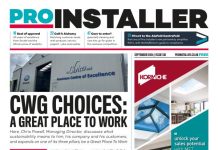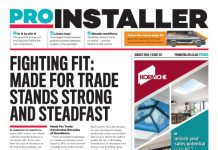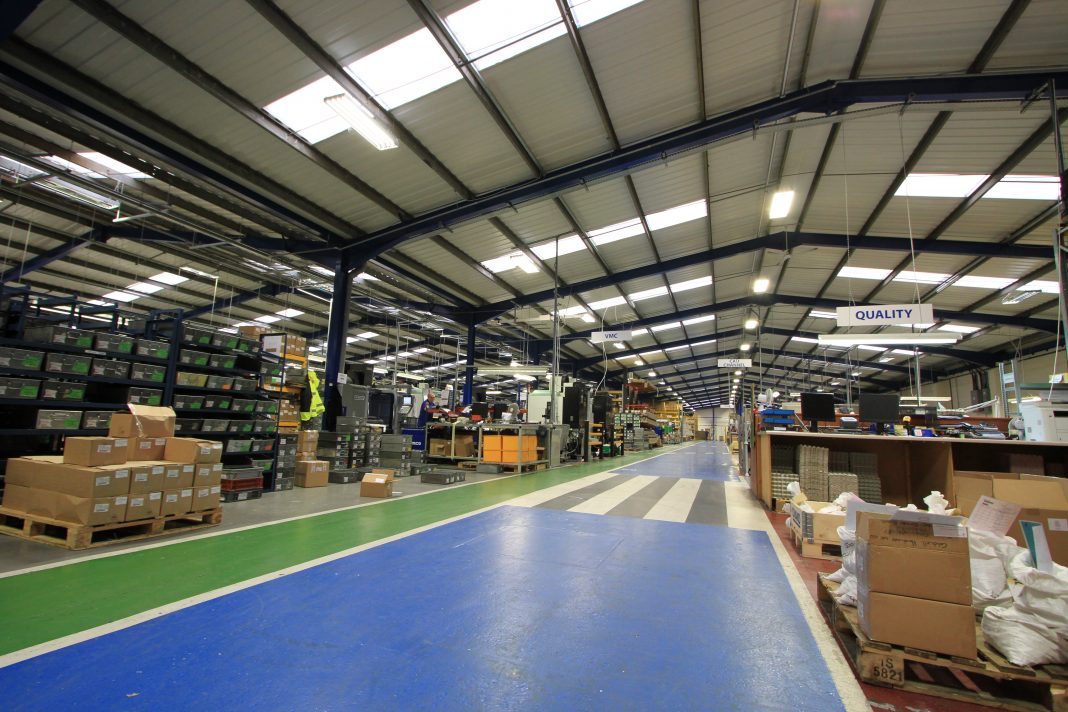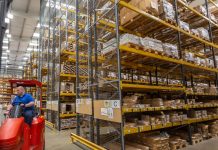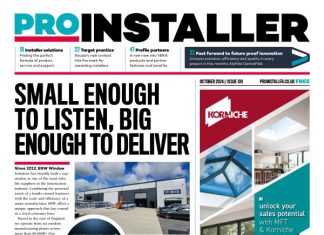In 2020, across every industry in the country, social distancing is likely to become the new norm. Ken Wilson of Caldwell offers his advice on implementing it in the glazing sector.
Lockdown is the biggest challenge glass and glazing has faced in a generation – but some fabricators are managing to continue, even if only on a much smaller scale.
While many firms have furloughed their entire workforce, others are carrying out essential work with a skeleton staff – and for those that are, social distancing has become a strange but critical part of everyday working life.
At the moment, the numbers of factory staff still working in our industry are very small. But as the pandemic peaks and, hopefully, starts to subside, it’s likely that the lockdown will only be lifted gradually.
That means many of us might be back in work before too long – but when we are, we’ll have to obey strict social distancing rules to keep the virus in check.
Here are a few tips we hope will help keep fenestration workers safe in the weeks and months ahead.
The basics
By now, I’m sure we’re all familiar with the basics, but they’re extremely important.
Wherever possible, staff need to keep at least two metres away from each other. That might mean you need to start up again on a smaller scale when the lockdown is eased, allowing more room between workstations.
Employees need to regularly wash their hands with soap and warm water for at least twenty seconds – ideally, when they arrive at work, at the start and end of every break, and before they leave to go home.
Make sure you’ve got extra soap or hand sanitiser (if you can find some) to cope with the extra demand.
If possible, have your premises cleaned more regularly – focusing in particular on communal areas like kitchens, bathrooms, and equipment used by multiple people.
If someone in an employee’s household has coronavirus symptoms, they obviously shouldn’t come to work.
Keep mixing to a minimum
In a workplace like a factory or a warehouse, some mixing is unavoidable. However, there are steps you can take to reduce the risk.
If people have to work together, make the groups as small as possible. Ensure staff members are always working with the same team members to keep social interaction to a minimum (for example, avoid assigning a person who’s been working on one shift to another that would involve them mixing with a different group of people).
If possible, have staff members work side-by-side or facing away from one another, rather than face-to-face. If some face-to-face contact is unavoidable, ensure it’s for less than 15 minutes.
At breaktimes, staff should be encouraged not to gather in groups. It feels unpleasant and anti-social – especially considering employees will have spent weeks under lockdown and unable to socialise – but it’s very important. Consider making it easier for staff to do the right thing by staggering break times.
If you’re in a building with lifts, it’s important that employees who are able to do so use the stairs instead. Lift panels, door handles, and the controls of machinery should be regularly disinfected.
Keep vehicles clean
Some workers in our sector have to drive company vehicles, or other equipment like forklift trucks and cranes. It’s especially important that they maintain good hygiene and practice social distancing wherever possible.
Company vehicles need to be regularly cleaned – focusing in particular on the steering wheel, handles, and anywhere else that people are likely to touch.
Wherever possible, windows should be kept open – not just in cars and vans, but in any enclosed space, as good ventilation might help reduce the risk of the virus spreading.
Getting back to normal
It’s important to recognise that factories, offices and warehouses aren’t built for social distancing. It’s therefore very unlikely any of us will be able to do it 100% of the time.
Instead, we should focus on following the regulations as much as possible within our individual fields – and even that won’t be easy.
It’s also likely that some staff members might be resistant to precautions they see as being ‘over the top’.
But measures like these are vital if we want to get our sector moving again – and, eventually, return to normality.
For more information please call 024 7643 7900 or visit www.caldwell.co.uk



